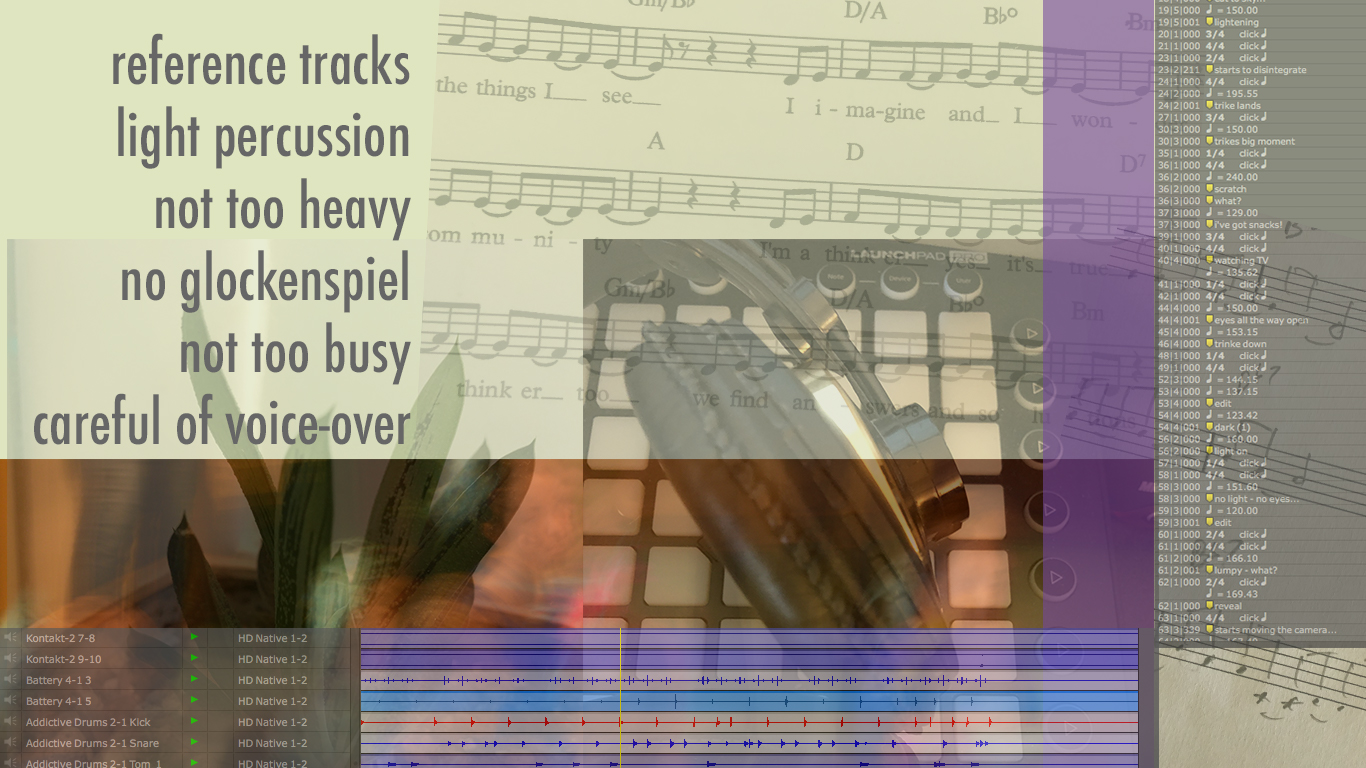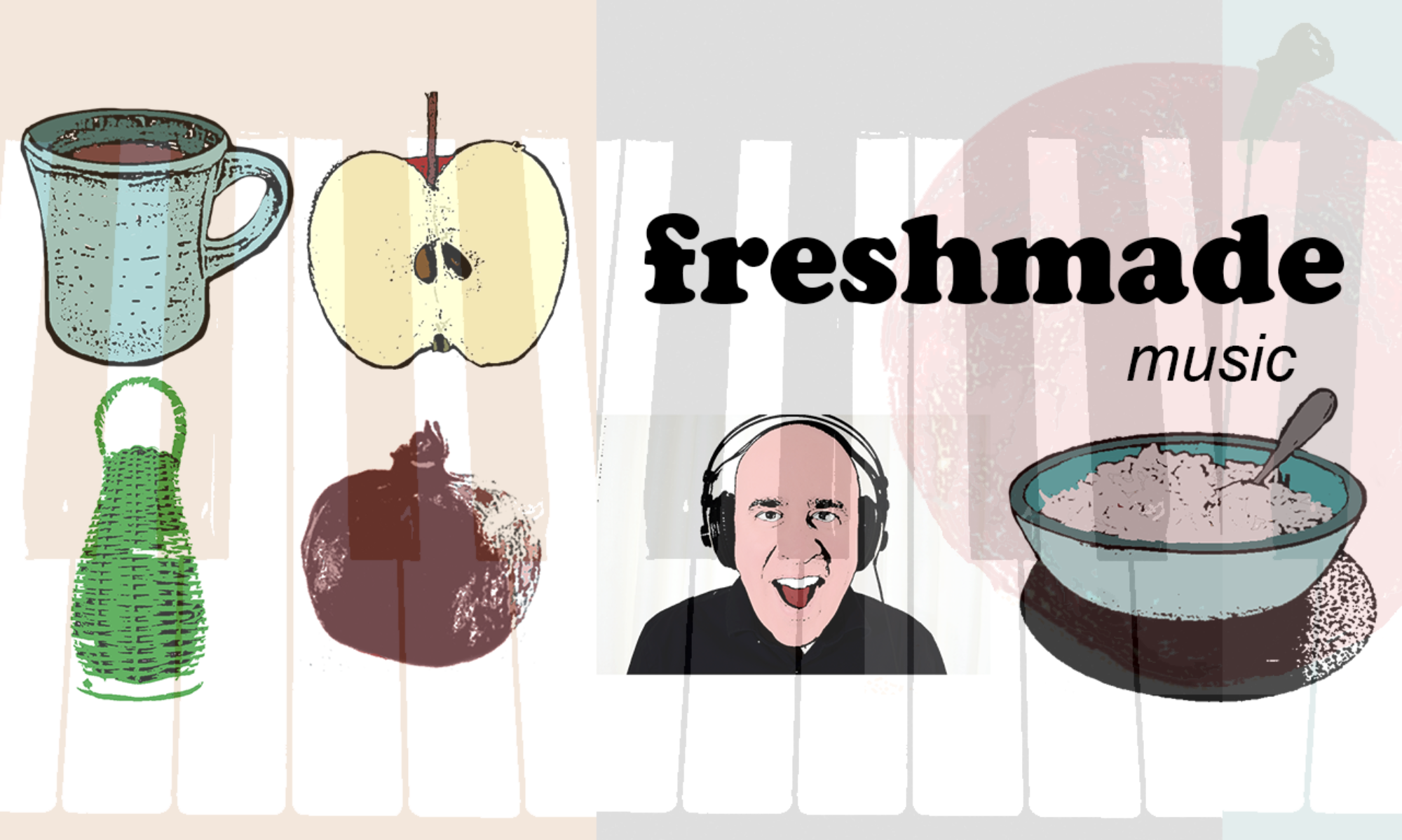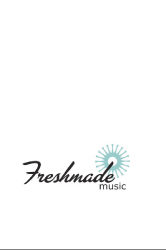
An audio brief is a road map, or recipe composers use that contains the logistical, technical, business and creative information necessary to begin creating music for a project. As a composer, I use audio briefs as a way to build consensus to make sure that everyone on the creative team agrees with all the details and the creative direction that the music is heading. The creative folks can be some combination of creator, director, writer, copywriter, producer, art director, or audio director depending on the project and industry. Usually if it’s a large group of people I’m meeting with, they have spoken and agreed on most if not all of these details. I prefer to go through each of these items, even if they seem clear to me, in case any of the details have changed.
Here’s the breakdown of the four parts I like to include in an audio brief:
• Logistical details include deadlines, track length and any required alternate versions. Many of the logistical details will be included in the business contract between the client and the composer, or in a less formal audio agreement. In most cases, I generate the audio brief once the contract or audio agreement is in place, so those details can be brought into the audio brief.
• Technical specifications can be pretty straight forward or complicated, specific to the project. They may include information like the bit rate, sample rate and audio file type, but can also include extensive audio requirements related to finalizing the track before delivery. It can get complicated pretty quickly in a video game project. Many details will be covered in the Game Design Document then incorporated and outlined in an Audio Master Document, which lists out information for all the sound assets in the game, including music, sound design and voice. No matter the complexity, getting these details ironed out early will ensure that the audio files can be easily synced and implemented upon delivery. This is especially helpful toward the end of projects when things are moving fast.
• The business details like the target market, broadcast medium (which may overlap with the technical specs) and any other research that might be helpful to take into consideration when exploring the direction of the music.
• The creative portion generally contains information related to genre, style, and mood. This step in the refining the audio brief usually requires some questions and probing. It There may be references to other audio tracks, or to artwork, which may be completed or in still in draft form. The initial brief I receive may start with something as simple as “upbeat, happy”. After a quick phone meeting with the creative team, I may amend the initial creative portion of the brief to “upbeat, happy – try ukulele, listen to the two reference tracks provided, light percussion but not too heavy, no glockenspiel, not too busy during first part of voice-over”. The second version is a lot more descriptive, right?
Most of my clients generally have a clear sense of what they want. In almost all the cases, they’ve worked on the project much longer than I have and have thought a lot about music options that they think will work. They also have a better understanding about any nuances and context, details that I will learn about if necessary as the project unfolds. My first job is to listen and consider their ideas. My second job is ask questions in order to refine the audio brief, and to make sure I can deliver the best music options possible. I also see it as my obligation to bring my years of experience to offer ideas that I think will work, asking questions like, “Have you thought of this other option?”. Since it can sometimes be difficult to figure out music just from discussing it, it’s often better to hear it. I find it helpful at the beginning of projects to write a few different ideas, a couple of short snippets that we can all examine, then figure out which one is working best and move forward.
During my audio brief meeting, I make sure to confirm all the items including the logistical and technical ones. Since projects often change, I want to make sure I have the latest updates. After I’ve confirmed all of these details over the phone, I will write up my notes into an email and send it to my clients to confirm. Once I get a confirmation from my client and I begin creating and producing music, I can move forward with the knowledge that the whole team is on board.
Creatives, what do you need from the audio brief? If you’re starting from scratch and you haven’t yet hired your composer, sketch out the details that you think your project needs and work with the composer you hire to fill in the remaining details. Also, don’t feel like you have to answer every question you have; in fact I find it can be helpful to know the list of questions or problems that my clients are trying to solve. Also remember, you don’t want to get stuck in process, you want to focus on the deliverable you’re going to receive. I find that it’s less important to my clients how I do my job of composing and producing, then whether I deliver what they’re looking for, when they’re looking for it. If they find it interesting to discuss audio production, I’m happy to explain my workflow and tools.
Composers, what do you need from an audio brief? Everything! If you’re looking through a brief that you didn’t create and anything looks unclear, or if there are acronyms you aren’t familiar with – ask! I would much rather firm up any details related to what my client wants before I start writing music, rather than deliver some music and have them point out something that isn’t consistent with the specs in the audio brief, or deliver something based on a false assumption that I made because I was too shy or embarrassed to ask a question. And as I’ve eluded to above, if the audio brief is incomplete or non-existent, I create it myself.
Audio briefs can be a helpful tool for communication. If used properly, they can be a foundation to a stable creative framework for a project and even to long lasting business relationship. I hope this explanation about audio briefs has been helpful. Do you have any questions? Are there details that you include in your workflow that I’ve missed? Please let me know!
Jerome Rossen is a composer, songwriter, producer and professional musician. For 18 years, Jerome has created music for advertising, apps, and kid’s video games. Jerome has placed his music in major TV shows like “The Bachelor” on ABC, MTV’s “The Challenge” and USA Network’s “Temptation Island”. Jerome also creates the music for the Happy Tree Friends, a very funny (though very violent) cartoon for adults and mature kids, with a huge cult following. He runs Freshmade Music, an independent audio studio. You can learn more at www.freshmademusic.com.

